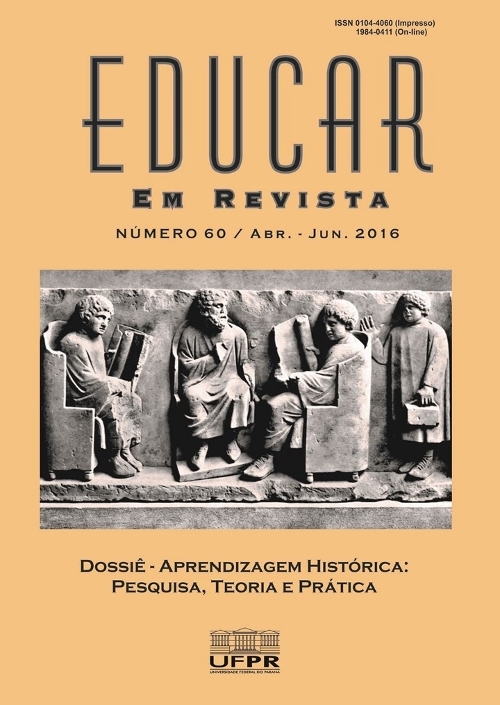The relationship between narrative construction and identity in History Education: implications for teaching and learning
Abstract
The purpose of the research is less about producing little historians and more about taking into account students’ cultures or identities in the teaching and learning of historical narratives. In my work, I have examined the national historical narratives that children and adolescents in the United States have constructed in order to assess the effects of young people’s racial/ethnic identities on their understandings of the past. I have found that young people’s racial identities had a significant impact on their interpretations of U. S. history and that their teachers’ instruction had some but not much impact on their views. Researchers within and beyond the U. S. have found similar results, attesting to the significance of “identity” (a person’s sense of self and the communities s/he affiliates with, including nationality, gender, ethnicity, religious orientation, etc.) in the construction and/or critique of historical narratives. In the following pages, I review and synthesize the studies that I and others have conducted on the effects of identity on history teaching and learning, and conclude with a discussion of the implications for teaching and learning history in diverse democratic societies.
Pubblicato
Come citare
Fascicolo
Sezione
Licenza
Todo o conteúdo do periódico está licenciado sob uma Licença Creative Commons do tipo atribuição BY.
Os Direitos Autorais para artigos publicados na Educar em Revista são do autor, com direitos de primeira publicação para a revista. A revista é de acesso público (Open Access), sendo seus artigos de uso gratuito, com atribuições próprias, em aplicações educacionais e não-comerciais.



